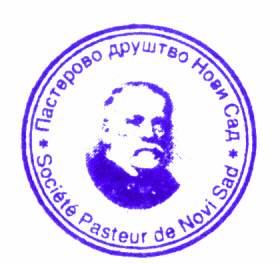md-medicaldata
Main menu:
- Naslovna/Home
- Arhiva/Archive
- Godina 2024, Broj 1
- Godina 2023, Broj 3
- Godina 2023, Broj 1-2
- Godina 2022, Broj 3
- Godina 2022, Broj 1-2
- Godina 2021, Broj 3-4
- Godina 2021, Broj 2
- Godina 2021, Broj 1
- Godina 2020, Broj 4
- Godina 2020, Broj 3
- Godina 2020, Broj 2
- Godina 2020, Broj 1
- Godina 2019, Broj 3
- Godina 2019, Broj 2
- Godina 2019, Broj 1
- Godina 2018, Broj 4
- Godina 2018, Broj 3
- Godina 2018, Broj 2
- Godina 2018, Broj 1
- Godina 2017, Broj 4
- Godina 2017, Broj 3
- Godina 2017, Broj 2
- Godina 2017, Broj 1
- Godina 2016, Broj 4
- Godina 2016, Broj 3
- Godina 2016, Broj 2
- Godina 2016, Broj 1
- Godina 2015, Broj 4
- Godina 2015, Broj 3
- Godina 2015, Broj 2
- Godina 2015, Broj 1
- Godina 2014, Broj 4
- Godina 2014, Broj 3
- Godina 2014, Broj 2
- Godina 2014, Broj 1
- Godina 2013, Broj 4
- Godina 2013, Broj 3
- Godina 2013, Broj 2
- Godina 2013, Broj 1
- Godina 2012, Broj 4
- Godina 2012, Broj 3
- Godina 2012, Broj 2
- Godina 2012, Broj 1
- Godina 2011, Broj 4
- Godina 2011, Broj 3
- Godina 2011, Broj 2
- Godina 2011, Broj 1
- Godina 2010, Broj 4
- Godina 2010, Broj 3
- Godina 2010, Broj 2
- Godina 2010, Broj 1
- Godina 2009, Broj 4
- Godina 2009, Broj 3
- Godina 2009, Broj 2
- Godina 2009, Broj 1
- Supplement
- Galerija/Gallery
- Dešavanja/Events
- Uputstva/Instructions
- Redakcija/Redaction
- Izdavač/Publisher
- Pretplata /Subscriptions
- Saradnja/Cooperation
- Vesti/News
- Kontakt/Contact
 Pasterovo društvo
Pasterovo društvo
- Disclosure of Potential Conflicts of Interest
- WorldMedical Association Declaration of Helsinki Ethical Principles for Medical Research Involving Human Subjects
- Committee on publication Ethics
CIP - Каталогизација у публикацији
Народна библиотека Србије, Београд
61
MD : Medical Data : medicinska revija = medical review / glavni i odgovorni urednik Dušan Lalošević. - Vol. 1, no. 1 (2009)- . - Zemun : Udruženje za kulturu povezivanja Most Art Jugoslavija ; Novi Sad : Pasterovo društvo, 2009- (Beograd : Scripta Internacional). - 30 cm
Dostupno i na: http://www.md-medicaldata.com. - Tri puta godišnje.
ISSN 1821-1585 = MD. Medical Data
COBISS.SR-ID 158558988
PAMETNE POMOĆNE TEHNOLOGIJE KOD OBOLELIH OD ALCHAJMEROVE BOLESTI
/
INTELLIGENT ASSISTIVE TECHNOLOGY FOR PATIENTS WITH ALZHEIMER’S DISEASE
Authors
Marijana Srećković1,5, Dušan Backović2, Predrag Kuzmanović1,3, Zoran Jovanović1,4, Miloš Mijić1, Tihomir Dugandžija5,6
1Visoka medicinska i poslovno-tehnološka škola strukovnih studija Šabac, Srbija
2Univerzitet u Beogradu, Institut za higijenu i medicinsku ekologiju, Medicinski fakultet
3Univerzitet u Novom Sadu, Prirodno-matematički fakultet, Departman za fiziku
4Opšta bolnica „Dr Laza K. Lazarević” Šabac, Srbija
5Univerzitet u Novom Sadu, Medicinski fakultet, Srbija
6Institut za onkologiju Vojvodine, Sremska Kamenica, Serbia
UDK: 616-07:621.39
613-056.24:616.89-008.434.37
The paper was received / Rad primljen: 15.10.2019.
Accepted / Rad prihvaćen: 24.10.2019.
Correspondence to:
Marijana Srećković
Visoka medicinska i poslovno-tehnološka škola strukovnih studija Šabac, Srbija
Hajduk Veljkova 10, 15000 Šabac
Telefon: +381638369898
e-mail: drsreckovicmaja@gmail.com
Sažetak
Napredak medicinske nauke i tehnologije produžio je očekivani životni vek, ali i doveo do toga da se danas suočavamo sa sve veči brojem osoba koje pate od neizlečivih i dugotrajnih masovnih nezaraznih bolesti. Alchajmerova bolest je vrsta demencije koja uzrokuje probleme sa kognitivnim funkcijama, pamćenjem, mišljenjem i ponašanjem. Simptomi se obično razvijaju polako i vremenom se pogoršavaju, postaju dovoljno ozbiljni da bi mogli ometati svakodnevne zadatke. Alchajmerova bolest ima fizički, psihološki, socijalni i ekonomski uticaj, ne samo na ljude sa demencijom, već i na njihove negovatelje, porodice i društvo uopšte, što predstavlja veliki javno-zdravstveni problem. Pošto trenutno ne postoje mogućnosti za efikasno lečenje i izlečenje, primenjuju se farmakološke i nefarmakološke metode radi poboljšanja kvaliteta života obolelih, jer izlečenje trenutno ne postoji. Jedan od takvih nefarmakoloških pristupa je upotreba pametne pomoćne tehnologije koja može doprineti poboljšanju kvaliteta života pacijenata i njihovih negovatelja. Pametna pomoćna tehnologija može biti od pomoći obolelima od Alchajmerove bolesti, tako što povećava njihovu sigurnost, poboljšava društveni život, pozitivno utiče na mentalno zdravlje, a negovateljima omogućavaju poboljšanje društvenog života i obavljanje poslovnih obaveza. Ovaj rad istražuje vrste pametne pomoćne tehnologije od pomoći pacijentima sa Alchajmerovom bolešću i njihovim negovateljima, prednosti i nedostatke pametne pomoćne tehnologije u tretmanu obolelih. Takođe je predstavljen je pregled etičkih pitanja koja su pokrenuta korišćenjem pametne pomoćne tehnologije u slučaju Alzheimerove bolesti.
Ključne reči:
pametna pomoćna tehnologija, Alchajmerova bolest, negovatelj, benefit, etičnost
Abstract
The advances in medical science and technology have extended humans life expectancy, but today we are facing an increasing number of people suffering from the incurable and long duration mass non-communicable diseases. Alzheimer's disease is a type of dementia that causes problems with memory, thinking and behavior. Alzheimer's disease has a physical, psychological, social and economic impact, not only on people with dementia, but also on their caregivers, families and society in general, which is a major public health problem. As there are currently no options for effective treatment and cure, pharmacological and non-pharmacological methods are being applied to improve the quality of life of patients, since there is currently no healing. One such non-pharmacological approach is the use of Intelligent Assistive Technology (IAT) that can contribute to improving the quality of life of patients and their caregivers. IAT can be helpful for patients with Alzheimer's disease, because of enhancing their safety, improving social life, positively affecting mental health, and allow caregivers to improve their social life and fulfill their business responsibilities. This paper explores the types of IAT that helps patients with Alzheimer's disease and their caregivers, the advantages and disadvantages of IAT in treating patients. An overview of the ethical issues raised by the use of IAT in the case of Alzheimer's disease was also presented.
Key words:
intelligent assistive technology, Alzheimer’s disease, caregivers, benefits, ethics
References:
- WHO. Rates of dementia.The World Health Organization. 2019. Available from: https://www.who.int/news-room/fact-sheets/detail/dementia.
- Alzheimer’s Society.Symptoms of Alzheimer's disease. Available from: https://www.alzheimers.org.uk/about-dementia/types-dementia/alzheimers-disease-symptoms#content-start
- Klimova B, Maresova P, Valis M, Hort J, Kuca K. Alzheimer’s disease and language impairments: social intervention and medical treatment. Clin Interv Aging. 2015;10:1401–1408.
- 4.Hurd MD, Martorell P, Delavande A, Mullen KJ, Langa KM. Monetary costs of dementia in the United States. N Engl J Med. 2013;368, 1326-1334.
- Maresova P, Klimova B, Novotny M, Kuca K. Alzheimer’s and Parkinson’s diseases: expected economic impact on Europe-a call for a uniform european strategy. J Alzheimers Dis. 2016;54(3):1123–1133.
- Ilić V. Interactive system based on Internet technology for psychometric diagnostic [dissertation]. Zrenjanin: Technical Faculty; 2009.
- Klimova B, Valis M, Kuca K.Exploring assistive technology as a potential beneficial intervention tool for people with Alzheimer’s disease – a systematic review. Neuropsychiatr Dis Treat. 2018;14:3151–3158.
- Novitzky P, Smeaton A, Chen C, Irving K, Jacquemard T, O’Brolcháin F, et al. A Review of Contemporary Work on the Ethics of Ambient Assisted Living Technologies for People with Dementia. Science & Engineering Ethics. 2015;21(3):707–65.
- Alzheimer’s Society. Alzheimer’s Society’s view on assistive technology; 2013.Available from: https://www.alzheimers.org.uk/about-us/policy-and-influencing/what-we-think/assistive-technology.
- Stucki RA, Urwyler P, Rampa L, Müri R, Mosimann UP, Nef T. A webbased non-intrusive ambient system to measure and classify activitiesof daily living. J Med Internet Res. 2014;16(7):e175.
- King AC, Dwan C. Electronic memory aids for people with dementia experiencing prospective memory loss: a review of empirical studies. Dementia. 2017;1:147130121773518.
- Stucki RA, Urwyler P, Rampa L, Müri R, Mosimann UP, Nef T. A web-based non-intrusive ambient system to measure and classify activities of daily living. J Med Internet Res. 2014;16(7):e175.
- Montenegrin Association for New Technologies. TeleCare.me projekat „Tehnologijom do boljeg zdravlja”. 2016. Dostupno na: http://mant.me/en/projects.
- Patel S, Bonato P, Park H, Chan L, Rodgers M. A review of wearable sensors and systems with application in rehabilitation. J Neuroeng Rehabil. 2012;20;9:21.
- Mckinstry B, Sheikh A. The use of global positioning systems in promoting safer walking for people with dementia. J Telemed Telecare. 2013;19(5):288–292.
- Vahia IV, Kamat R, Vang C, et al. Use of tablet devices in the management of agitation among inpatients with dementia: an open-label study. Am J Geriatr Psychiatry. 2017;25(8):860–864.
- Inoue K, Wada K, Ito Y. Effective application of Paro: Seal type robots for disabled people in according to ideas of occupational therapists. Springer. 2008.
- WHO. The World Health Report 2001: Mental health: New understanding, new hope, World Health Organization.
- Mrazovac B. A novel solution for indoor human presence and motion detection in wireless sensor networks based on the analysis of radio signals propagation [dissertation]. Novi Sad: Faculty of Technical Sciences; 2015.
- Mckinstry B, Sheikh A. The use of global positioning systems in promoting safer walking for people with dementia. J Telemed Telecare. 2013;19(5):288–292.
- Machiko R. Tomita, Linda S. Russ, Ramalingam Sridhar, Bruce J. Naughton M.Edited by Mahmoud A. Al-Qutayri Smart home with healthcare technologies for community-dwelling older adults. Smart Home Systems. 2010. ISBN 978-953-307-050-6.
- Alberdi A, Weakley A, Schmitter-Edgecombe M, Cook DJ, Aztiria A, Basarab A, et al. Smart Home-Based Prediction of Multidomain Symptoms Related to Alzheimer’s Disease. IEEE Journal Of Biomedical And Health Informatics. 2018;22(6):1720–31.
- 23.Cavallo F, Aquilano M, Arvati M.An ambient assisted living approach in designing domiciliary services combined with innovative technologies for patients with Alzheimer's disease: a case study.Am J Alzheimers Dis Other Demen. 2015;30(1):69-77.
- Arends J, Wolf K-H, Wichert R, Ungureanu C, Augusto JC, Chen W, et al. Recent Advances in Ambient Assisted Living-Bridging Assistive Technologies, E-Health and Personalized Health Care. Amsterdam: IOS Press; 2015. Available from: http://ezproxy.nb.rs:2059/login.aspx?direct=true&db=e000xww&AN=1135266&site=eds-live .
- Sperling RA, Aisen PS, Beckett LA, Bennett DA, Craft S, Fagan AM, et al. Toward defining the preclinical stages of Alzheimer’s disease: Recommendations from the National Institute on Aging-Alzheimer’s Association workgroups on diagnostic guidelines for Alzheimer’s disease. Alzheimers Dement 2011;7:280-292.
- Iencaa M, Fabricea J, Elgera B, Caond M, Pappagalloe A S, Kressigf R W, et al. Intelligent Assistive Technology for Alzheimer’s Disease and Other Dementias: A Systematic Review Journal of Alzheimer’s Disease 2017;56:1301–1340.
- Meiland F, Innes A, Mountain G, et al. Technologies to support community-dwelling persons with dementia: a position paper on issues regarding development, usability, effectiveness and cost-effectiveness, deployment, and ethics. JMIR Rehabil Assist Technol. 2017;4(1):e1.
- Landau R, Werner S. Ethical aspects of using GPS for tracking people with dementia: recommendations for practice. Int Psychogeriatr. 2012;24(3):358–366.
- Alzheimer’s Society. Alzheimer’s Society’s view on assistive technology; 2013. Available from:https://www.alzheimers.org.uk/about-us/policy-and-influencing/what-we-think/assistive-technology.
- Ienca M, Fabrice J, Elger B, Caon M, Scoccia Pappagallo A, Kressig RW, et al. Intelligent Assistive Technology for Alzheimer's Disease and Other Dementias: A Systematic Review. J Alzheimers Dis. 2017;56(4):1301-1340.
- Global action plan on the public health response to dementia 2017–2025. Geneva: World Health Organization; 2017. Licence: CC BY-NC-SA 3.0 IGO.
- Wangmo T, Ienca M, Jotterand F, Elger B, Kressig RW. Ethical Design of Intelligent Assistive Technologies for Dementia: A Descriptive Review. Science & Engineering Ethics 2018;24(4):1035–55.
PDF Srećković M. et al • MD-Medical Data 2019;11(3): 147-152
 Medicinski fakultet
Medicinski fakultet